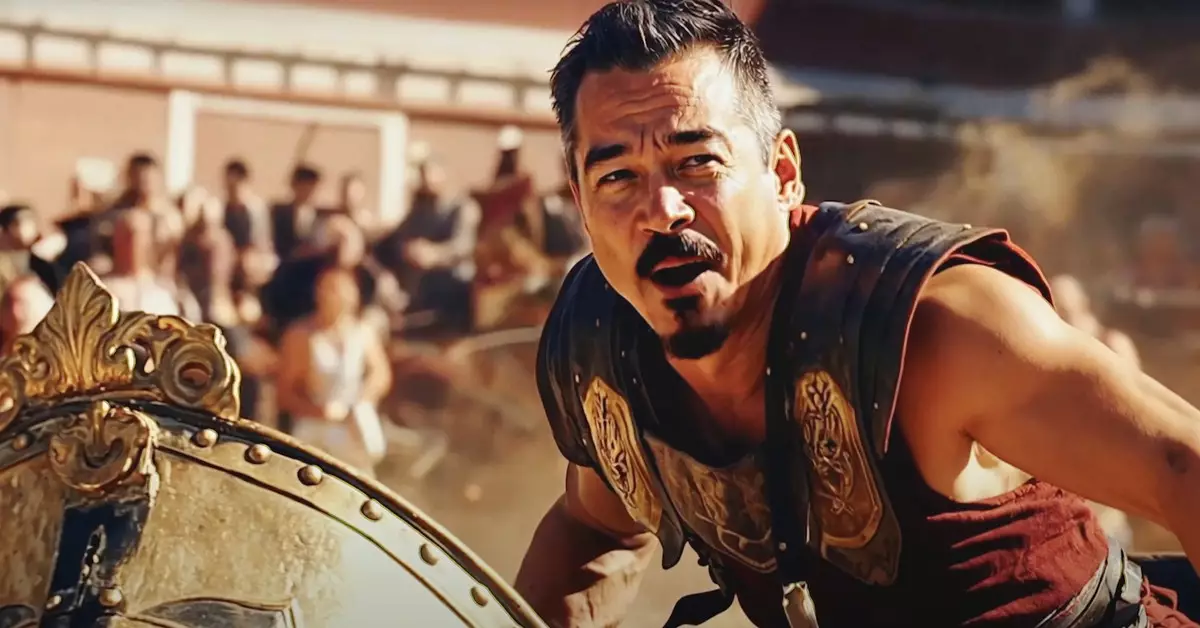In an era where AI is becoming an integral part of creativity and entertainment, TCL’s recent foray into AI-generated short films has sparked significant conversations. Their latest initiative, which includes five new films airing on TCLtv Plus, poses the question: can AI truly capture the essence of storytelling? This examination will delve into TCL’s AI films, highlighting their shortcomings while acknowledging the potential for innovation within the medium.
TCL’s venture began with the release of the AI-animated short film “Next Stop Paris.” Initially, viewers were greeted with a presentation reminiscent of a hyper-stylized Lifetime movie, characterized by awkward animations and characters that failed to emote appropriately. The backlash from the public might suggest a reluctance toward AI stepping into narrative roles traditionally dominated by human creativity. However, instead of halting their efforts after the unsatisfactory reception of “Next Stop Paris,” TCL chose to release additional works that further explore this nascent art form.
Despite improvements in the visual fidelity of these new films, they serve as a stark reminder that AI is far from mastering the nuances of human storytelling. The allure of AI-generated content lies in its ability to generate rapid output; however, the intricacies of emotional depth and complexity risk getting lost in translation when translating human experiences into algorithms. For each film produced, it’s clear that the animation technologies, although advanced, still grapple with crafting a relatable narrative arc.
In evaluating the five new films, it’s evident that they traverse a spectrum of creativity and execution, each eliciting varied responses from viewers. The films can be ranked from mildly entertaining to almost unwatchable, shedding light on the varied outcomes of AI storytelling.
1. **Aurora**: This film takes inspiration from classic narrative structures, particularly drawing parallels to Ray Bradbury’s “All Summer in a Day.” While its premise is intriguing—a young girl winning the opportunity to witness the sun after being trapped—its execution falls short. The protagonist’s misadventures, fraught with overwhelming confusion and bizarre AI-generated imagery, dilute the emotional resonance of the plot. The attempts at making characters relatable, marred by stiff animations and limited expressions, leave the audience yearning for genuine human connection.
2. **Project Nexus**: A twist on traditional storytelling, this piece resembles a teaser rather than a complete narrative. It introduces viewers to a group of teens who gain supernatural powers after exposure to a glowing rock. However, the film’s abrupt ending gives little resolution, leaving viewers unsatisfied. Despite a promising concept, the hasty pacing and lackluster animations serve to distance the audience from their emotional investment in the characters.
3. **Dr. Warren Brown**: This docufiction film is more experimental in form; it incorporates human actors while integrating an AI retelling of a climactic avalanche experience. The blend of real and AI-generated sequences creates a unique viewing experience, yet it walks the line of absurdity, especially when showing overly dramatized visuals. The surrealism can detract from the gravity of the story, rendering it confusing rather than poignant.
4. **The Audition**: This short begins with the potential for humor as it chronicles a rather absurd casting call. Unfortunately, the comedy quickly spirals into a series of poorly executed gags, leaving viewers baffled rather than amused. As the protagonist morphs to fit increasingly eccentric demands, the whole premise starts to feel like a whimsical nightmare, lacking in genuine wit or relatability.
5. **Metamorphosis**: Perhaps the most unsettling of the bunch, this film explores themes of isolation and illness in a bizarre manner. The transformation from a woman into a slug invites discomfort rather than empathy. While it’s an ambitious attempt at tackling deeper themes through AI, it lacks clarity and coherence, leaving viewers bewildered and often repulsed.
TCL’s foray into the realm of AI-generated short films illustrates a complex relationship between technology and storytelling. While they are pushing boundaries and exploring new possibilities, the current output showcases a fundamental gap in capturing the depth of human experience. The films stand as a testament to the growing pains of this medium, with the potential for storytelling through AI still in its infancy.
As audiences become more engaged with AI narratives, it remains to be seen whether future advancements will bridge the gap between human emotion and algorithmic creativity. For now, these short films serve as both a curiosity and a cautionary tale, echoing the importance of genuine storytelling in an age increasingly driven by technological capabilities. The quest for meaningful narratives will ultimately determine the success of AI in the cinematic landscape.

